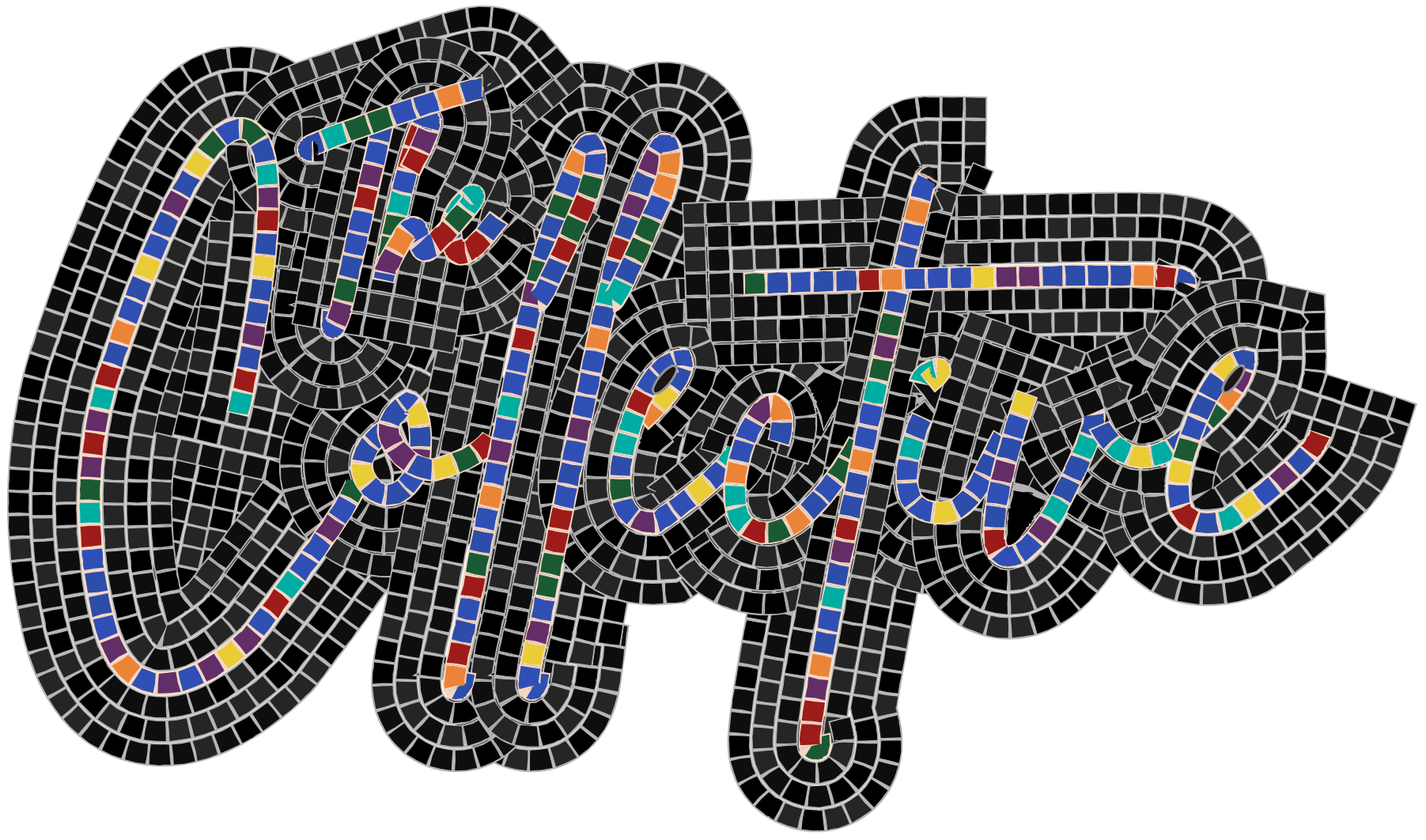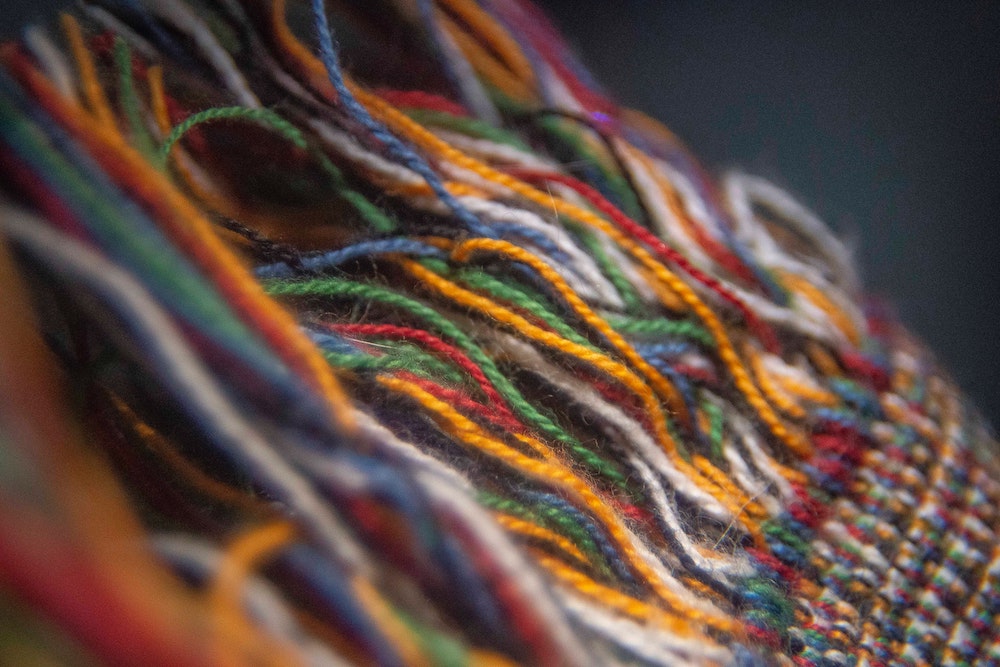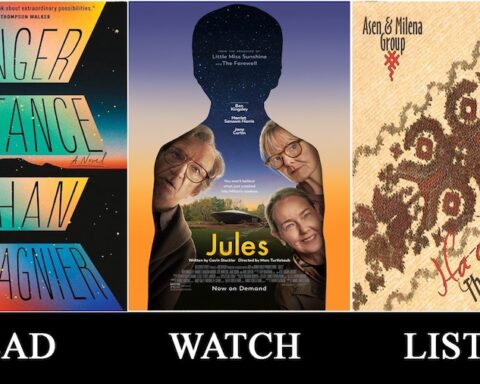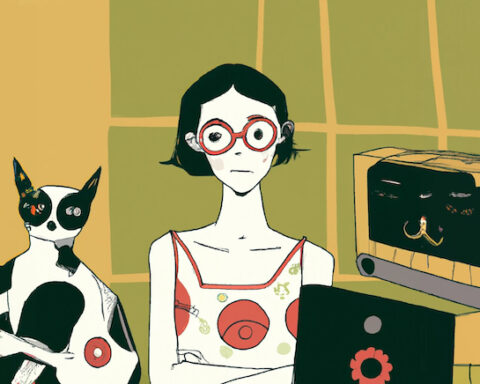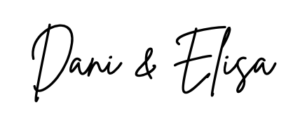I push my hands through my hair, then rub my eyes. I’m not sure how to write this. Do I start with a story?
Toward the end of my senior year of undergrad, my friend Dee knocked at the door of the study room where I was binging Stargate SG-1. They asked, “Are you okay?”
“Of course,” I said. “Why?”
Dee looked at me. “How long have you been in here?”
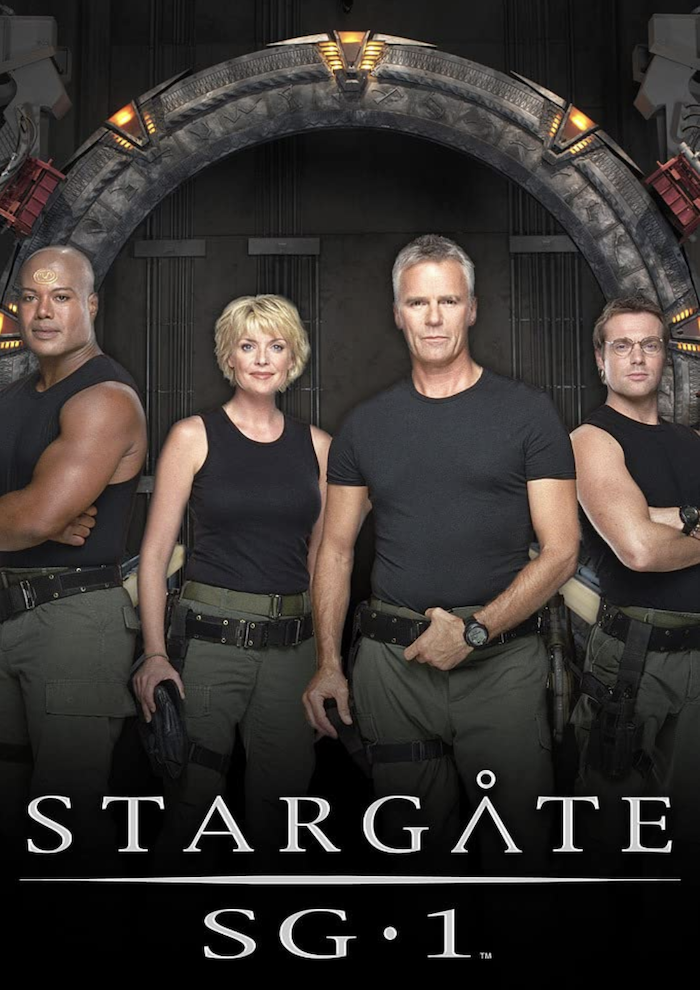
That’s a trope America likes, isn’t it?
It’s strange, but until they asked that, until I looked up and saw them asking with a little frown of kind concern, I hadn’t realized how much I was struggling. I hadn’t let myself see it. That was my third day going to the study room. Each morning I told myself I’d work on final papers. Then I watched Netflix. I wasn’t okay.
I’d loved college (and often been lonely throughout it). I’d found close friends (and wondered about falling in love). I’d met incredible mentors. My need-based scholarship brought me to a community where brilliant people offered new paths of thought, supporting me in wandering out through my confusions. I tried to be a Promising Student. I wanted to stay in this “elite” institution with its beautiful art studios (for me, sculpture and metal working) and travel abroad funds (Vietnam, Russia, Spain and Germany). At the same time, my membership in this privileged world always felt provisional. It had been given, and it might be taken back. Now I was supposed to be “finishing.” The place where I’d been allowed to stand was disappearing, not because I did something wrong, but because there was nothing left I could do that was “right.”

With my friend Dee looking at me, I think I said, “Oh.”
They came into the study room to talk.
These days most of my TV watching is alone in my apartment, especially since COVID, and nobody tends to knock. I’m writing this to sit with how I “use” television, how that connects to ways I feel “okay” and “not okay,” and how all this connects with forms of writing — which are forms of “making meaning,” imbedded inside multi-voiced social perspectives on what’s meaningful.
Leaning on my standing desk, I scratch my nose, push a piece of chocolate into my mouth, and stare at my computer screen. If that’s where I start, what’s next?
Sometimes I get home, grab my laptop, and open Netflix before I really notice what’s happening. In thinking about that experience, I want to explore how we can read watching Netflix as a many-authored event. It isn’t something I just do: it’s situated in socially-shared ways of understanding the world (we could call that an “imaginary” — more later). It exists in my loose group of understood possible responses for a certain situation (my “genres,” if you want). In other words, bingeing Netflix, as an editor for this piece pointed out, is “very much a thing.” When I’m stressed, it makes sense to me to go watch Netflix. That’s a familiar genre, a thing I do, a thing I’ve seen other people do. Maybe you do it, too?
At home last Winter Break, my family and I watched Resident Alien together. When I get back to my empty apartment and think about watching something, I’m in part trying to recreate the sense of closeness I had in my mother’s house some 2,000 miles away. Following Bakhtin, I realize that the phrase “watch something” is literally inherited. That’s what my mother says. “Do you want to watch something?” My mother’s language is asleep (or awake?) inside my language. It’s part of how I speak, how I write, so one “author” of this piece — and of the way I watch Netflix — is my family traditions. These authors create responses/kinds-of-behavior/genres that I turn toward in certain kinds of experiences. They also give me language. I think many of us have been taught to pretend that books and ideas are written by single authors. I think the pretense only works when I’m also taught to hide all the ways “my” writing and being pulls from other people, traditions, and requirements. And of course, there are other lessons, reminding me of all the voices speaking through and with me.
There are going to be scholars in here. I hear their voices, like Bakhtin’s, inside what I’m writing. I say their names not because I think you “should” recognize them (I don’t; there are so many more people I haven’t read), but because this whole piece is thinking about the different people who are here. I don’t cite them in MLA format because I think citations can be gate-keepery and exclusionary and can propose a system of idea ownership that feels, to me, untrue. If Bakhtin is in my language, who is in Bakhtin’s? Shouldn’t I cite them, too? I want to bring in scholars like you bring in your friends when you’re talking about grilled asparagus, and you mention how Vanessa always makes it, or what Roger says it’s like. (A perfect food, he says). A poet named Peter Sipeli suggests “…we stand in the center, ever present, our bodies that we carry are libraries with our ancestors sleeping on our tongues and their spirits folded carefully in our bellies.” The people “here” (family, friends, scholars, strangers in chance discussions) and the communities they draw from are part of my world, and part of how I see the world.
In Science and Technology Studies (STS) there’s the concept of an “imaginary,” the kind of shared social frame in which we organize and interpret experience. If each person has a worldview, I sometimes think of imaginaries as the shared social construction that imprints worldviews (that’s from McNiel et al.). As Slater points out, when we “discovered” that Pluto wasn’t a planet, what we really “discovered” was the Kuiper belt with thousands of Pluto-like objects; we could have included all of those as planets, but maybe we weren’t comfy with thousands of planets. A planet feels special; all together, we’d be uncomfy with having thousands of them. Slater suggests that’s our astronomy-imaginary at work. Using that concept, I think a mainstream American family-imaginary has room for “work time,” “shared rest time,” and “tech as entertainment,” so sitting together looking at the flickering light box makes sense (on a social level) as a way to spend time together. It works within my social ways-of-understanding. In Genre Studies, we can imagine a genre as a learned way of speaking, behaving, thinking, and being — I saw other people binge watching and I learned I could, too (that’s from Bawarshi and Reiff).
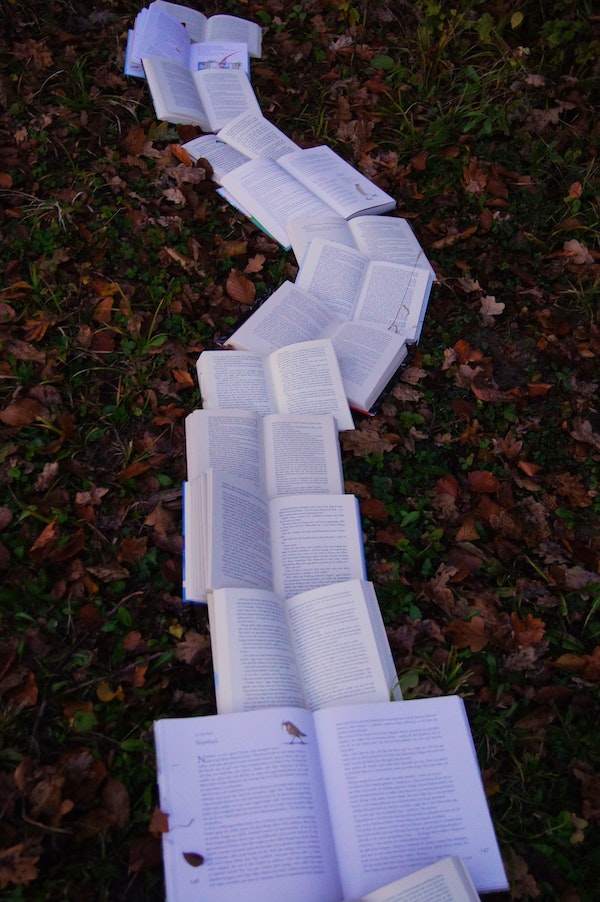
Right now, I’m thinking about genres as patterns of behavior that unfold inside the shared conceptual framework of an imaginary, but the relationship is complex (in part because, as far as I know, people from the two disciplines don’t tend to read each other), and I don’t want to get in your way of forming your own messy idea of these terms and their relationship. Both terms help me think about Netflix. Binging TV shows fits inside the imaginary I have for understanding self/work/rest, and it’s one of the genres I turn to when I’m stressed. In the same way that my family is co-authoring the way I watch Netflix, these concepts are co-authoring this piece of writing (and its understandings/questions/confusions). I’m learning from them. “Every teacher is very actively co-authoring her students’ texts,” Prior says.
Here’s another author of my Netflix habit: internalized capitalism that leads me to imagine/interact with myself as someone who should be doing.[7] This crops up all over the place — memes about a “hustle culture,” and the phrase “to make something of yourself,” or a high school principal’s reminder to “be your best self.” That assumes, doesn’t it, that there are better and worse versions of me, that there is some rubric by which I could identify the best? My sense for that rubric is connected to internalized ideas of success and achievement, productivity and the (“moral”?) rewards that go with having produced. All this might also be called a kind of self-imaginary: self as (capitalist) producer.[8]
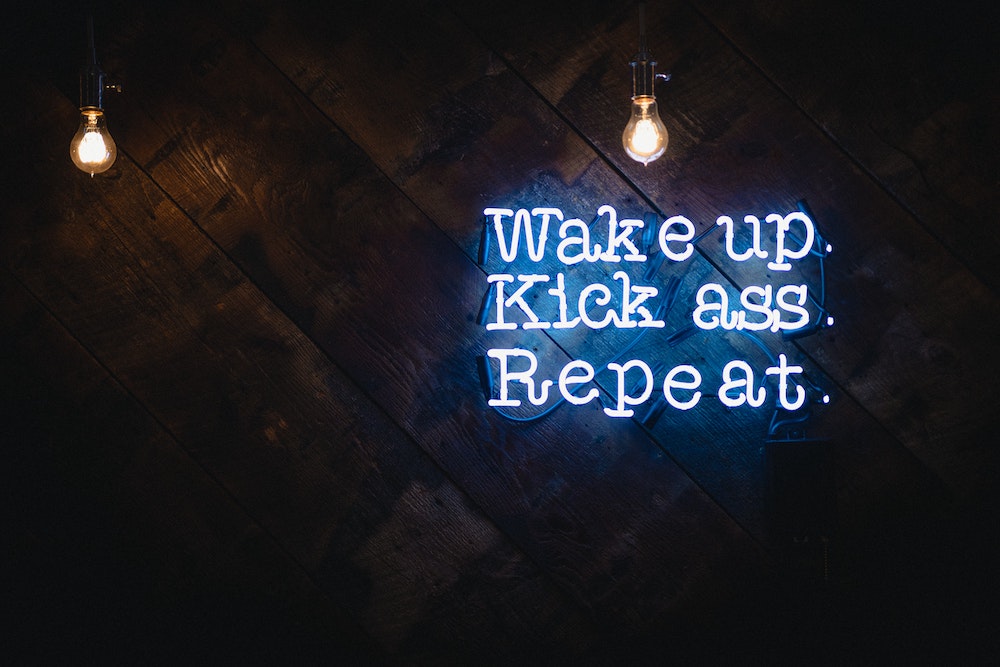
[8] One fun thing about imaginaries is they point out, in sometimes difficult ways, their own alternatives: for instance, once I see that I’m inhabiting a self-as-producer imaginary, I can start thinking about how Chamber’s Monk and Robot series invites us to consider a self-as-object imaginary, in which we might not draw a line between what I am and what a rock is.
And wow have I fallen for it. Graduate school, work, other shadows in my mind — I tend to collapse my value into the value of what I’m doing/have done. That means I try to keep working. If I don’t, I might be worth less. I might be worthless. That creates a constant pressure to do more that I exert on myself (and that my culture exerts on me — I wrote the first draft of this piece for a graduate seminar, I’m revising it for a publication. Hustle culture doesn’t exist just in my head). I watch TV to “hide” from that pressure. If the pressure is a current that flows down around me, TV is a rock outcropping that makes an eddy. I try to sink in. I try to “stop thinking,” to stop worrying about “what I have to do.” I don’t think I’m alone in this. It’s a genre I pick up, a familiar behavior for “people like me,” whatever that means. It makes sense inside how I’ve learned to think about the world. If you binge watch, do you do it for similar reasons? What do you do to try to “stop thinking” about “what you have to do”? Or does the social imaginary you inhabit not push you to understand yourself this way?
I think there are lots of ways I could “stop thinking.” Lots of ways to “take a break.” I like lying on the wood floor, looking at the ceiling, fingers tracing the boards. If someone came in, they might think that was weird. If someone came in, I’m not sure how I would explain myself. So that’s another author: a cultural narrative that suggests watching TV as an understandable (in Genre Studies, perhaps “legible”) way to deal with stress.
There are probably imaginaries in which resting is not taking a break, where I’m not encouraged to understand myself as alternating between good productive time and barely-justifiable relaxation time (so I can be productive again). In the moment when I first drafted this, I didn’t feel like I had access to those other imaginaries. Sitting here, revising, I feel like I do, or almost might. My authors so far: my family, capitalist understandings of self, conceptions of what it is to “unwind.”
I open the window, feel the breeze. Press my fingers against the window screen. When I turn to type this, I’m struck by window screen and computer screen — these squares with “something else” on the other side.
What else? Who else? So many people. The actors and actresses, and the genres/cultural framings that enmesh them — professional ambition, understandings of “passion” and “good art,” a financial imperative toward projects that $$$, and all the personal/interpersonal presentations of making yourself legible to yourself and others. (Which is part of what I’m doing here, while writing this.) We’ll need to include the writers and set designers. The animators and camera operators, the directors and casting managers and digital compositors and sound effects engineers and grips, distributors, producers, gigantic corporate entities with an economic interest in me watching. All the people in the credits. I think watching Resident Alien is interacting, in some way, with Sandra Maya, Jillian Cabernel and Sven Soukup, even if I had to look up their names on IMDb. I don’t usually think of it that way. Is it too “cute,” too precious of me to bring in their names? I don’t think so.


In talking about the understanding of self that’s encouraged/required by the culture of American undergrad admissions, Lythcott-Haimes suggests, “Find your passion — by January 1st.” I did that. I said “I want to be a writer” because it seemed like an answer people liked.
Is it too cute for me to worry if I’m being too cute, and leave that in the text? Maybe. It can be cheap, a way of pretending closeness when I haven’t found my way to closeness. I hope it can also be an honest (not only honest, but still honest; we can be many things at once) admission of what I’m trying to do, of my worries about what I’m trying to do. Is this, in the end, supposed to be an article? If it’s not, what is it? And when the words stop where will we be?
So far: my family, capitalist “selves,” constructions of how to “unwind,” cast, crew, content distributors, content producers. I’d add government oversight. In college I watched pirated copies of The West Wing. I got a frightening email threatening legal action. I stopped. Legal structures — intellectual property, net neutrality, tax law — are also co-authors of how and what I watch, though often in subtler ways than strict censorship.
It’s a lot. This isn’t as clear or as neat as I hoped it would be. I’m less and less convinced that I’ll come up with an answer, and more and more worried that these ramblings may not “be useful.” That stresses me out. Part of me wants to go watch Netflix.
Am I supposed to find an answer? And if so, an answer to what?
Now that I’ve noticed my worry, my sense of impending failure, now that I’ve admitted I just want to quit, I also want to keep writing a bit more. The writing feels closer.
Langford explores how genres can do lots of things for lots of different people: a movie store (ha! shows how old we are, Langford and me) uses genre to arrange its offerings for shoppers. Want to watch a comedy, or a classic, or something from staff picks? The “classifications” here might be different from, say, a film professor’s categories, but then again, they’re doing different things inside related capitalist/competitive systems. The store is probably using categories to help you find something you’ll spend money on, and the prof (like any prof) probably uses categories in the context of a system that predicates their existence as a prof on whether they produce enough of “the right” kind of “academic,” jargon-laden work. Both of those are different from (though connected to) how we might use genre while we’re reading — foreboding music in The Woman In The House Across The Street From the Girl In the Window means something different from foreboding music in Rear Window, and if we’re familiar with the genres, we know that. The genre tells us how to read.

I also use genres to understand what I’m supposed to be (a producer — or perhaps a “scholar,” commenting on cultural productions?) and to intimate my emotions to others. A friend and I may be falling for each other. They rested their legs on my lap while we watched, well, Netflix. I rested my hands on their knees. Perhaps this is a genre of American romance. I also use genre to position others in certain roles. There is a performativity, in Butler’s sense, to my teaching; I do certain things, repeat certain kinds of phrases, to elicit/encourage certain kinds of responses. At the beginning of class, “Let’s get started” is a not-so-subtle reminder of the authority constructed in me by the University of Illinois. (All of which makes me uncomfortable.) So genres are, simultaneously and in different people’s hands, an organizational tool, an interpretative tool, a constructive constraint/possibility, and a way of positioning others.
Just as genre is many things at once, this piece is, simultaneously and perhaps uncomfortably: 1) A revised draft of something I wrote for a grad seminar in Genre Studies. 2) An attempt (for myself) to understand my own use of TV as a “stress relief.” 3) An attempt to notice my own habits, and then maybe change those habits — to get stuck less in watching Netflix. 4) An “article” I’m submitting to The Collective. 5) An attempt to resist, and engage with, common forms of academic writing that exclude the personal and the embodied. 6) An attempt to experience and inhabit my own body as I write. 7) An attempt to use my own silly Netflix habits as a site to examine concepts of multi-authorship and the multilayered functioning of genre in writing/living/being. And that’s only what I’m aware of meaning for it to be. What is it for you? An entertainment? A bore? A tool, and if so, toward what? Is it an exciting companion to your own thoughts, or an embarrassing display, as if I (thirty-three) were trying to floss at a bus stop?
That reference won’t age well.
When I go to the movie store of Netflix, I often start with “New.” When I don’t find anything I want, I watch another episode of something familiar from my “recently watched” queue. Even though I don’t want that, either. When I was eleven, playing Dungeon Siege led to moments of wonder. This video game world came alive, its crises and its heroes, its lush forests. I got to be a hero. When I, twenty-one, played Dungeon Siege 2, I didn’t want to play Dungeon Siege 2. I wanted to be eleven again, playing Dungeon Siege. It didn’t work. I finished the game anyway. At twenty-one, was I playing because the game’s colors and sounds were a kind of confetti in my loneliness? Because I remembered the immersion I’d felt at eleven, and wanted it back? Because playing Dungeon Siege had been part of how I connected with my cousins, and we were growing apart, and I missed them?
Yes, yes, yes. I think it’s all three.
There is not one thing happening. In Netflix, in writing, in being — there are many things. Then again, this is me reaching for “an insight” to share with you. In doing that, I’m making many things into one thing. One insight. I don’t want to do that.
I click a nail against my teeth.
Part of me wants so much to be a good writer. I want to live up to the expectations I’ve internalized. I want you to think this was worth your time. At the same time, I don’t want to follow all the rules about linear argument that are often held out as characterizing “good writing.” There are so many queer writing studies scholars — Stacey Waite, for one — who open exciting ways to let writing live into layered experience, instead of close down into a conclusion. I want to do that.
A breeze through the open window.
I don’t think we’re supposed to end up in the same place. I want to visit my places, your places, our places. I hope you’re finding something that is part your own, part shared, partway between these words and your experience of sitting or standing or lying down wherever you’re sitting or standing or lying down.
In the apartment beneath me, my neighbor is hammering something. I imagine it’s a painting they’ve done, a scene with swans and stars and all the lovely nutritious muck of a swamp. Now I imagine they’re hanging it on the wall. The hammering sounds a bit like knocking.
I’d rather be talking about all this with you. The genre of (pseudo-academic? narrative? rambling artistic faux-op-ed?) writing is often constructed as something done alone. I am alone in my apartment. Following Bakhtin, following Bawarshi and Reiff, following theater scholar John O’Neal, I would rather not be. Writing is something we do together. I use the words I learned from people who used words they learned from people. It is a collective chain of interaction — or (I imagine instead, because a chain reminds me of a line) a complex tapestry of many threads weaving all at once.

Lineage sounds like a line, and that’s strange, so instead my friend and I suggest weaveage: the weavings from which we each come.
I bring you into this writing. You — you Dani and Elisa, by being editors who’ve given me comments on this draft, and you the reader now, by reading — bring me into this. This mess of thoughts and layers. Unless you’ve stopped reading.
Perhaps I am trying to knock on the door of the room where I’m sitting. I’m trying to be my own friend, Dee, who I’ve long since lost touch with. Or I’m trying to ask: are you okay? To sit with that: not to construct an answer, but to live in the question. To open a space where you — yes, you — and I might see each other. And it’s a failed attempt. This writing is going one way: I type, you, if you choose, read. What modes do we use, what genres do we write, to connect to each other? And what kind of connections are we after? In the genres they take up, an Instagram influencer and a YouTube personality and an anthropology professor and a US presidential candidate propose different relationships between “me” and “you.” The genre they write in influences the shape of those proposals, it pushes them to suggest different relationships, and each writer can also push back and bend genres’ proposed relationships this way and that. Duffy comments that writing always means making ethical choices. It means suggesting an answer to the question, Who might I be to you? Who might you be to me?
I’d like to be someone who, like Dee, coming into the study room, looks into my friend’s eyes and sees something. I’d like to be someone whose questions lead to some kind of shared ground, some kind of conversation. I’d like to be someone who listens, to myself and others. Perhaps I’m trying to knock on the door to where you’re sitting. I’m inviting you to knock on the door to where I’m sitting. I’m asking, want to talk?
A glass of water. Cool. Cliché of me to write it, perhaps, but there is a closeness, a hereness, to drinking. This time I feel it.
Genre can feel like a trap. In the abstracted intellectualized authority of (many) academic languages, I’m caged away from my body, my sweat, my initial reasons for wanting to write. Certain forms, as Glasby (and plenty of others) argues, not only disallow certain arguments, they disallow/discredit/devalue certain subjectivities, certain ways of knowing, certain ways of being. Inside the “genre” of an English classroom, my students are often silent, tense, on guard. I ask a question. Silence. Sometimes my students and I decide together to try this exercise where we pair up and just talk: it’s midterms, how are you doing. It’s optional, and some people decide to opt out. Everyone else usually starts talking: ten energetic conversations going on at once. When I ask students to comment on the silence when we were talking about “school stuff,” and the engaged noise of their paired conversations, one student says to me, “Well I’m not sure what to say about the reading, but we know how to just talk to each other.” When I ask if we could “just talk to each other,” another student is interested but skeptical. “In all my classes…” they say, before pausing: “I don’t know. Like you’re not usually supposed to bring the ‘you’ stuff in.” They’re not alone in this: bell hooks writes beautifully about the exclusion of body from school. The genre of a classroom, even before I start teaching, is a trap. I feel the same trap when I sit down to write anything that’s supposed to be academic and, one day, maybe, “publishable.” How can I be queer-weird-playful-heartbroken-hopeful-confused-excited me in that? Genre — what this is supposed to be — is a trap.
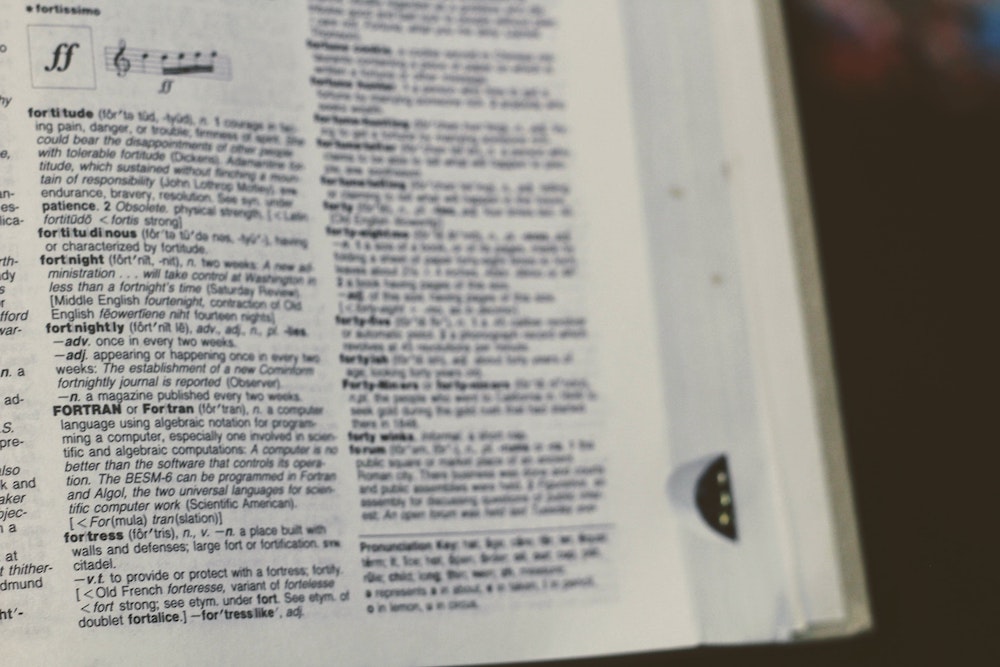
And yet, and yet: who is using genre? And for what? I think back to Russell’s amazing Women and Dictionary-Making. One of the many amazing things that book does, for me, is detail how the position of “objective reference authority” that dictionaries are “supposed” to inhabit is itself the trap, the lexicographical deal with the devil, that recreates ways of knowing that are just, well, awful. Defining words is always a statement of power. There is always something at stake. There is always a production history, in which these or those choices were made, and there are always authors with their own positionalities. A pose of abstract authority is a lie, as it tries to hide its own functioning, and an erasure, as it pretends a single consistency over diverse reality. If you mark “cunt” as offensive, and leave it at that, you’re erasing lots of ways that different communities use that word. Then again, most dictionaries assume that the “you” who will be using these words is white, cis, male.[12]

But if genre is a trap (if the fact of taking up the position of a dictionary and therefore an objective word-definer is itself the trap), then genre is also a way out of the trap that is genre.[13] Russell gives examples of what feminist dictionaries do instead of the traditional form, including giving “illustrative quotations only” (for me, this could ground “definitions” more specifically in usages), sharing “a short story” (for me, this could ground definitions in lived experience), or offering “a thoroughly circular definition requiring consultation of a number of terms found only within the same dictionary” (for me, this could ground words into the complexity and interdependence of talking, of exchanging and collaborating on meanings, of living together). I say “for me” because one could use these alternative forms to move toward a variety of writerly goals, but at the same time, I think each other option is itself a genre. Don’t want to write a “traditional” definition that assumes you have the final word on this word? Good, then. Don’t. You can do this instead. A new genre is the way out. Feminist dictionaries critique (lots of different) assumptions about what it means to define a word, and embody new means of definition (and other-than-definition).
One more example: I have felt love for someone and not wanted to give them store-bought flowers. Not wanted to go out to dinner someplace with starched white napkins, and have someone wait on me. Not wanted to be possessive, to be a “man” in the relationship. I feel these norms of behavior expected of me, read into me, and it hurts. Yet sometimes I still feel called to follow them. Genre is a trap. And I’ve seen other genres, other ways of being in a relationship, other queer people inhabiting their own styles of love and connection, and thought, yes, I want to love like that. Genre is a way out of the trap.
I think there are (or may be) other options, options that move slantwise to genre, that have no patience for all my palavering about imaginaries and how I construct the world. In a little while I’ll stop writing. I’ll go to a dance performance. I’ll watch someone move, or move myself, or be touched. All these things could be interpreted as genre, but there is also the touch itself, the contact. When all my arguments and reasonings and writings go nowhere, other people are, always already, going lots of places. And I can go join them. Partway through this rough draft, I went to a performance choreographed by Jakki Kalogridis and saw someone (it seemed to me) literally glitching inside their own body. The movements were sharp, erratic. They sped up. I hurt, watching, and I wanted to watch, and watching gave me a different way of engaging with experiences that I did not yet know I was struggling with. I did not know I had felt that pain, that glitch, inside my body. I did not know that I was fractured like this. In the eggshell glass-edge of watching them dance, I wanted to look away, and I didn’t want to look away, and I was more of what I’d been already. Now Kalogridis is helping author this.
Did the dancer give me another genre? Maybe. Did they, in their movement, allow me to access something that my genres and my imaginaries had been urging me to silence? Maybe. For me it’s not very important to decide whether it was this way or that way. I want to know, by reading this way and that way, what do we learn? What becomes possible?
In opening Netflix, what kind of chance am I looking for? What do I really want a break from, and what would a “break” be? What kind of experience/s do I want? What kind of connection/s do I want?
I lay on the floor. I rest my hands on the wood. If you come in, I’ll say, Look, would you like to try? I won’t call it Floorflix but the pun in my head might make me giggle. I’ll ask, what are you feeling, now? Where are you looking, how are you hoping to see yourself and a moment?
As a writing instructor, I’ve often created assignments that go something like: look at the book, collect quotes/examples (“evidence”), sit with the evidence, use it (the plurality of experience made into a singular, into evidence) to construct an interpretation. What do you think’s going on? Can you say it in a thesis sentence? In this writing, I realize, I’m looking for something that is not a thesis sentence. The assignment just described starts from many details and moves toward a singular statement/argument/interpretation. In pulling on genre threads, I start with one kind of experience, and my questions lead out. This is a moment, for me and I so much hope for you, of many voices, many authors, shared perspectives and sharing possibilities. This is part of a weave. Threads tied with threads. Threads tied with threads tied with threads. We collaborate, we co-write, along them.
I think there’s always knocking on the door.


I mentioned these people.
(so here they are, if you’d like to read them)
(though there are so many more people I could have mentioned)
(and even more I should have mentioned because of their wonderful, troubling, related work, but I haven’t read them. Not yet, I hope, for some of them. But there are always more: out beyond where I’ve been, and submerged inside where I am).
Mikhail Bakhtin, “The Problem of Speech Genres”
Anis S. Bawarsi and Mary Jo Reiff, Genre: An Introduction to History, Theory, Research and Pedagogy
Carole Blair, Julie R. Brown, and Leslie A. Baxter, “Discipling the Feminine” in the Quarterly Journal of Speech volume 80 (1994). I didn’t actually talk about this one, but I should’ve, because it’s amazing, and does a really precise job of laying out the writerly pose their discipline tacitly requires, and the failings of that pose, the dangers of its enforcement. And when their initial article was rejected for not being what it was supposed to be, they widened their scope and published this article with their original plus quotes from the initial reviewer’s rejections, and an analysis of how those quotes are doing exactly the kind of disciplinary enforcement that they’re commenting on. Bam.
Judith Butler, Gender Trouble
Becky Chambers, Psalm for the Wild-Built
John Duffy, “Writing Involves Making Ethical Choices,” Section 1.8 in Naming What We Know edited by Linda Adler-Kassner and Elizabeth Wardle
Ross Gay, “Feet” in catalogue of unabashed gratitude
Hillery Glasby, “Making It Queer (Not Clear)” in Re/Orienting Writing Studies
bell hooks, Teaching to Transgress
Jakki Kalogridis. You can look at pictures of “The Ritual” in Tangent Spaces (2022) at http://www.jakkikalogridis.com/tangent-spaces, although the video isn’t up yet. I’m excited for when it drops.
Barry Langford, “Chapter 1: Who Needs Genre?” in Film Genre: Hollywood and Beyond
Ursula Le Guin, “A Left-Handed Commencement Address”
Julie Lythcott-Haimes, who’s inspiring, and what I’ve quoted here I heard in a live lecture (and so have no record).
Maureen McNeil, Michael Arribas-Ayllon, Joan Haran, Adrian Mackenzie, and Richard Tutton, “Conceptualizing Imaginaries of Science, Technology and Society”
John O’Neal, who is often spoken of as a key figure in the Theater practice of the “story circle.”
Paul Prior, “Chapter 7: Tracing Process: How Texts Come Into Being” in What Writing Does and How It Does It edited by Charles Bazerman and Paul Prior
Lindsay Rose Russell, Women and Dictionary-Making: Gender, Genre, and English Language Lexicography
Peter Sipeli, “The Sleeping Ancestors,” https://www.youtube.com/watch?v=5QPN0wJDXMM
Matthew Slater, “Pluto and the Platypus: an oddball and an odd duck”
Stacey Waite, “How (And Why) To Write Queer” in Re/Orienting Writing Studies
